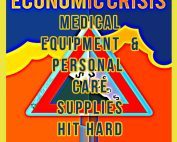Mental Health & Substance Abuse
Life is a journey including bumps in the road.
Mental health feeds the engine that drives our progress.
Mental Health & Substance Abuse Help for You
Life is a journey including bumps in the road.
Mental health feeds the engine that drives our progress.
Finding the right help for mental health challenges involves a comprehensive and personalized approach. As a mental health social worker, my role is to empower individuals to take charge of their mental health journey. By following this six-step process, individuals can navigate the complexities of the mental health system, access appropriate resources, and work towards achieving their mental health and well-being goals. It’s essential to approach this process with patience, self-compassion, and a commitment to long-term mental health maintenance.
10.2m+
have drug and alcoholism disorders at the same time
90%
who die by suicide have mental illness
20%
have mental health disorders
Step 1: Self-Assessment and Acknowledgment
The first step involves self-assessment and acknowledgment. Encourage individuals to reflect on their feelings, thoughts, and behaviors. Acknowledging the need for help is a vital and courageous step. Assessing the severity and impact of symptoms helps individuals understand the urgency and type of support required.

Step 2: Research and Education
Support individuals in conducting research and educating themselves about mental health conditions, treatment options, and available resources. Encourage them to explore reputable websites, read books, and attend educational events to gain a better understanding of their specific challenges. Knowledge empowers individuals to make informed decisions about their mental health.


Step 3: Seeking Professional Guidance
Guide individuals to seek professional guidance from mental health professionals. This can include therapists, counselors, psychologists, or psychiatrists. Ensure they consider professionals with expertise in the specific area of concern, whether it’s substance abuse, dementia, or other behavioral health conditions. The initial consultation allows individuals to assess the therapist-client fit and discuss treatment approaches.

Step 4: Utilizing Supportive Networks
Encourage individuals to lean on their support networks, such as family, friends, or community groups. Discussing mental health challenges with trusted individuals reduces the sense of isolation and can lead to valuable insights and recommendations. Supportive networks can also play a crucial role in encouraging treatment adherence and providing emotional support.

Step 5: Exploring Treatment Options
Help individuals explore various treatment options based on their needs and preferences. This may include psychotherapy, medication management, support groups, or holistic approaches. Collaborate with mental health professionals to develop a personalized treatment plan that addresses the individual’s unique circumstances and goals. Emphasize the importance of ongoing communication with the treatment team.

Step 6: Advocating for Continuity of Care
Guide individuals in advocating for continuity of care. Ensure they understand the importance of regular follow-up appointments, medication adherence if prescribed, and consistent engagement in therapy or support groups. Collaborate with the individual to identify potential barriers to care and develop strategies for overcoming them.

















